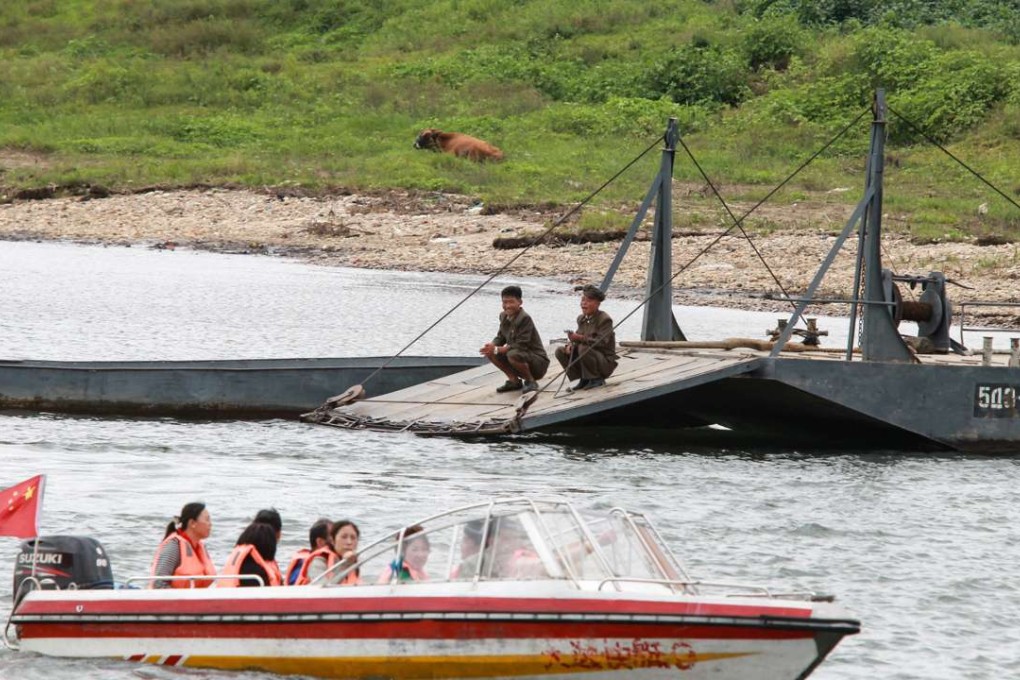Sanctions, what sanctions? Inside the Chinese border town doing business with North Korea
In Dandong, anomalies emerge in Beijing’s sanctions on its old friend, not least a mysterious jump in sales of sensitive ‘Category 84’ items

It’s 9.30am on a Tuesday morning and container trucks with North Korean number plates are lined up outside the customs checkpoint at the Chinese end of the 73-year-old Yalu River Bridge in this town of Dandong.
A North Korean driver jumps from his cab and passes some paperwork to a Chinese official. As he gets back into the cab, Chinese customs inspectors put a small lock on the container’s doors. In a few minutes, his truck is on its way across the border.
This part of the border between North Korea and China is a hive of activity, though local traders say traffic is down since China banned some imports from North Korea in April following Pyongyang’s fourth nuclear test in January.

But that hasn’t stopped China from supplying its old ally with sensitive items, as official Chinese figures show. In the first half of this year, one particular line of products – the 824 items classified by an international customs convention as Category 84, which include nuclear reactors and equipment that can be used in reactors – replaced textiles as the second-biggest export category. Plastics and polypropylene, which experts say could have military applications, now rank fifth.
China was among the global powers that put the screws on North Korea over its nuclear weapons programme by way of tougher UN sanctions in March that restricted trade with the hermit kingdom. Beijing announced in April that it would ban most imports of North Korean coal, iron ore, gold, titanium, vanadium and rare earths, the country’s main exports. These are the toughest sanctions China has ever imposed on North Korea, an ally once described by Mao Zedong (毛澤東) as being “as close as lips and teeth”.